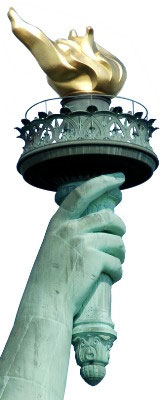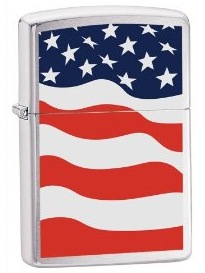You’ll find no simpler product, and in my opinion no simpler pleasure, than a fine handmade cigar. Made from meticulously grown tobacco, expertly blended and constructed, the fine cigar is a luxury that can be enjoyed for an hour at a time, yet can be had for just a few dollars.
 And that makes it even more of a shame that government is waging a war—naturally, an undeclared and unconstitutional war—against tobacco. Punitive taxes, trade restrictions, government-funded phony science, massive regulatory schemes, state-created cartels, violations of property rights, even free speech restrictions—you’ll find them all in government’s attempts to stop people from enjoying this simple plant. As in other wars, government attacks indiscriminately, making no distinction between small, family-owned cigar companies and “Big Tobacco.”
And that makes it even more of a shame that government is waging a war—naturally, an undeclared and unconstitutional war—against tobacco. Punitive taxes, trade restrictions, government-funded phony science, massive regulatory schemes, state-created cartels, violations of property rights, even free speech restrictions—you’ll find them all in government’s attempts to stop people from enjoying this simple plant. As in other wars, government attacks indiscriminately, making no distinction between small, family-owned cigar companies and “Big Tobacco.”
State attacks on tobacco can be found throughout history. Rodrigo de Jerez, one of Christopher Columbus’ sailors, was thrown in jail for seven years by the Spanish Inquisition for smoking the “Devil’s weed,” which he brought back with him to Europe after Columbus’s historic 1492 journey.
Since that time, governments have excommunicated, slit the lips of, and even poured molten lead down the throats of those who defied smoking bans. Despite being a pack-a-day cigarette smoker in his youth, Hitler came to consider smoking a Jewish habit and had the Nazi government launch an all-out campaign against tobacco.
Back then, America sent its boys to war with a pack of cigarettes as part of a soldier’s daily rations. Today, our tobacco policy more closely resembles that of Nazi Germany. Even the U.S. military, which defeated the Axis with cigarettes blazing, announced this summer it was considering a total smoking ban.
Our head of state today was also once a pack-a-day smoker. And while President Obama still sheepishly admits to smoking the occasional cigarette, that hasn’t stopped him from leading the largest expansion yet of the war on tobacco. One of his first acts of office was signing into law a historically high tax hike on tobacco—federal cigarette taxes jumped from 39 cents to $1 a pack, while taxes on handmade cigars increased a staggering 750 percent. Cigar factories have already begun to close, as hundreds, if not thousands, of jobs are lost.
Only a few months later, Obama signed a bill into law that puts tobacco under the regulatory jurisdiction of the Food and Drug Administration, meaning that, among other regulatory hoops, new cigarette products will have to be approved by FDA bureaucrats, even though it will be illegal for cigarette companies to highlight FDA approval in their advertisements. Flavored smokes are now banned, and all cigarette advertisements will be black and white and text only—hardly the robust free speech our founders envisioned when they penned the First Amendment.
But like so much expansion of the government, the war on tobacco is hardly a one-party issue. FDA regulation of tobacco has been a pet issue of Republican Sen. John McCain for well over a decade. And McCain’s 2008 presidential primary rival Mike Huckabee told an audience that, if elected, he would sign a national smoking ban if one made it to his desk.
In the one area where Obama has made comments that are welcome to cigar smokers, normalizing relations with Cuba, politicians of both parties have joined to stall any steps towards ending the embargo that was signed into law by President Kennedy over 48 years ago. Famously, the night before approving the embargo, Kennedy sent his press secretary, Pierre Salinger, around DC to buy 1,200 of his cherished Cuban H. Upmann cigars. Presidential hypocrisy on tobacco, it seems, is not a new phenomenon.
Armed with government-funded research, a well-funded group of professional lobbyists continues to agitate for more restrictions. In the states and in local government, they push smoking bans for public parks, bars, restaurants, apartment buildings, and even personal cars. On the federal level, they push for more taxes, further restrictions on advertising, and prohibitions on mail-order tobacco. If the current campaign for government-run healthcare succeeds, expect a slew of new regulations under the guise of keeping health cares costs down.
One anti-smoking law nearly always leads to another. In San Francisco, after a smoking ban pushed smokers out of bars and onto the sidewalk, the mayor proposed an additional tax on cigarettes to clean up the cigarette butts the exiled smokers created. Elsewhere, after cigar smokers reacted to smoking bans in bars by creating private clubs, politicians “closed the loophole” by extending the ban to the clubs.
Despite this onslaught, cigars are experiencing something of a renaissance, with quality and variety as good as ever. Today the best non-Cuban cigars, usually from Nicaragua, the Dominican Republic, or Honduras, are as good as Cuba’s top smokes. Innovative blenders are creating new cigars with all the complexity and subtleties of the world’s finest wines.
In the past year, cigar makers (and consumers) have organized to fight the ever-expanding threat to their business. Leading cigar maker Rocky Patel told me, “Every night I go to bed and I worry about the government putting us out of business.” Another maker, Nick Perdomo of Perdomo Cigars, called the government his “biggest competitor.”
The problem is government doesn’t merely compete. It destroys with taxes, regulations, and other infringements of liberty. All of which make every cigar you smoke a small act of defiance against big, oppressive government. I recommend defying often, and with a strong spirit in your other hand.
[This article originally appeared in the Fall Issue of the Young American Revolution, the quarterly magazine of Young Americans for Liberty.]
–Patrick S
photo credit: ELCivics.com


 And that makes it even more of a shame that government is waging a war—naturally, an undeclared and unconstitutional war—against tobacco. Punitive taxes, trade restrictions, government-funded phony science, massive regulatory schemes, state-created cartels, violations of property rights, even free speech restrictions—you’ll find them all in government’s attempts to stop people from enjoying this simple plant. As in other wars, government attacks indiscriminately, making no distinction between small, family-owned cigar companies and “Big Tobacco.”
And that makes it even more of a shame that government is waging a war—naturally, an undeclared and unconstitutional war—against tobacco. Punitive taxes, trade restrictions, government-funded phony science, massive regulatory schemes, state-created cartels, violations of property rights, even free speech restrictions—you’ll find them all in government’s attempts to stop people from enjoying this simple plant. As in other wars, government attacks indiscriminately, making no distinction between small, family-owned cigar companies and “Big Tobacco.” The ban exempts menthol-flavored cigarettes but includes such “adult” flavors as coffee and whiskey. The menthol exemption is thought to be the result of lobbying by Altria, the world’s largest cigarette maker, which supported the bill as a way to protect its market share.
The ban exempts menthol-flavored cigarettes but includes such “adult” flavors as coffee and whiskey. The menthol exemption is thought to be the result of lobbying by Altria, the world’s largest cigarette maker, which supported the bill as a way to protect its market share. The title itself speaks to the problems with the article. “Big Tobacco” may not be a mom and pop operation, but those entrepreneurs are up against something far bigger—the federal government. So if it’s “Big Tobacco,” who are they striking back against? “Colossal Government”?
The title itself speaks to the problems with the article. “Big Tobacco” may not be a mom and pop operation, but those entrepreneurs are up against something far bigger—the federal government. So if it’s “Big Tobacco,” who are they striking back against? “Colossal Government”? Patrick Ashby
Co-Founder & Editor in Chief
Patrick Ashby
Co-Founder & Editor in Chief Patrick Semmens
Co-Founder & Publisher
Patrick Semmens
Co-Founder & Publisher George Edmonson
Tampa Bureau Chief
George Edmonson
Tampa Bureau Chief